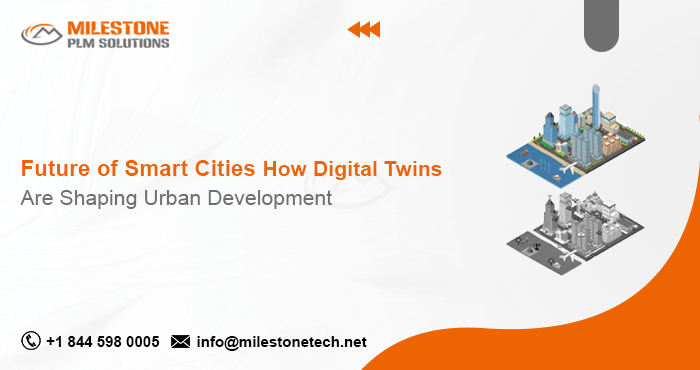Future of Smart Cities: How Digital Twins Are Shaping Urban Development

As cities around the world face unprecedented challenges—from rapid urbanization to climate change—urban planners, architects, and engineers are increasingly turning to advanced technologies to create more sustainable, efficient, and livable urban environments. One of the most transformative tools in this endeavor is the concept of “Digital Twins.” These virtual replicas of physical assets, systems, and processes are revolutionizing the way cities are planned, constructed, and managed, marking a significant leap towards the future of smart cities.
What Are Digital Twins?
At its core, a digital twin is a dynamic digital representation of a physical object, system, or process. It is continuously updated with real-time data from sensors, IoT devices, and other sources, allowing it to mirror the physical counterpart accurately. This connection between the physical and digital worlds enables the simulation, analysis, and optimization of real-world scenarios in a virtual environment.
In the context of urban development, digital twins can represent anything from a single building to an entire city. These models integrate data from various sources, such as geographical information systems (GIS), building information modeling (BIM), and environmental sensors, to create a comprehensive and interactive digital replica. This capability offers unprecedented insights into how urban environments function and how they can be improved.
The Role of Digital Twins in Urban Planning
Digital twins are poised to play a pivotal role in the evolution of smart cities. By providing a holistic view of urban infrastructure, these digital models enable planners and developers to visualize, simulate, and optimize urban development projects with a level of precision that was previously unimaginable.
- Enhanced Decision-Making: Urban planners can use digital twins to model the impact of various development scenarios, such as the construction of new infrastructure or changes in zoning regulations. By simulating these scenarios in a digital environment, planners can assess the potential outcomes on traffic flow, energy consumption, environmental impact, and more. This data-driven approach leads to more informed decision-making, reducing the risk of costly mistakes.
- Sustainability and Resilience: Digital twins enable cities to monitor and manage their environmental impact more effectively. By integrating data on energy use, emissions, and resource consumption, cities can identify areas where sustainability measures can be implemented. Moreover, digital twins can simulate the effects of extreme weather events or other disasters, allowing cities to develop more resilient infrastructure and emergency response plans.
- Efficient Resource Management: With digital twins, cities can optimize the use of resources such as water, energy, and transportation. For example, a digital twin of a city’s water supply network can help identify leaks or inefficiencies, leading to more effective maintenance and conservation efforts. Similarly, digital twins can be used to optimize traffic flow and reduce congestion by analyzing real-time data from traffic sensors and adjusting traffic signals accordingly.
- Public Engagement and Collaboration: Digital twins also offer a powerful tool for engaging the public in the urban planning process. By visualizing proposed developments in a digital environment, cities can present complex information in an accessible and understandable format. This transparency fosters greater public participation and collaboration, ensuring that urban development projects align with the needs and preferences of the community.
Challenges and the Road Ahead
While digital twins offer tremendous potential for shaping the future of smart cities, several challenges must be addressed to fully realize their benefits.
- Data Integration and Interoperability: Digital twins rely on vast amounts of data from diverse sources. Ensuring that this data is accurate, up-to-date, and interoperable is a significant challenge. Cities must invest in robust data management systems and standards to ensure seamless integration and analysis.
- Privacy and Security: The extensive use of sensors and IoT devices in digital twin systems raises concerns about data privacy and security. Cities must implement strong cybersecurity measures to protect sensitive data and ensure the privacy of residents.
- Cost and Accessibility: Developing and maintaining digital twins can be costly, particularly for smaller cities with limited budgets. Ensuring that the benefits of digital twin technology are accessible to all cities, regardless of size or resources, is crucial for promoting equitable urban development.
Conclusion
Digital twins are set to revolutionize the future of smart cities, offering a powerful tool for creating more sustainable, efficient, and resilient urban environments. By enabling cities to simulate, analyze, and optimize urban development projects in a digital environment, digital twins provide unprecedented insights into the complex dynamics of urban life. As more cities around the world adopt this technology, the potential for digital twins to transform urban development is limitless. However, to fully harness this potential, cities must address challenges related to data integration, privacy, security, and cost. With the right strategies in place, digital twins will play a central role in shaping the cities of tomorrow.
Follow Milestone PLM Solutions for AEC Industry Updates, CAD Tips and Global Construction News.
Milestone PLM Solutions with its exclusive delivery center in India is a global CAD, BIM outsourcing partner serving the needs of the AEC industry since 2004. MILESTONE focuses on the unique needs of clients and believe in tackling real-life problems with efficiency, smooth and ease.
The MILESTONE team can assist you with DD Set, CD Set, BIM Modeling, Rendering, walk through and more. We support multiple BIM software including AUTOCAD REVIT, Architecture cad, Cabinet Vison, Vector works etc. Our approach is to provide a dedicated team for each customer over ongoing project and deliver the quality output consistently.
With our state of art technology and large talent pool of Engineers & Architects, we are developing best in class solutions for our customers across the globe. We align with your culture and values to form unbreakable partnerships and are primed for success with over 100 employees and 150 customers in the US, Europe, India, and Asia.
You can email us at info@milestonetech.net and can log in to our website www. milestonetech.net to know more about our services and our work portfolio or contact us on +1-844-598-0005
